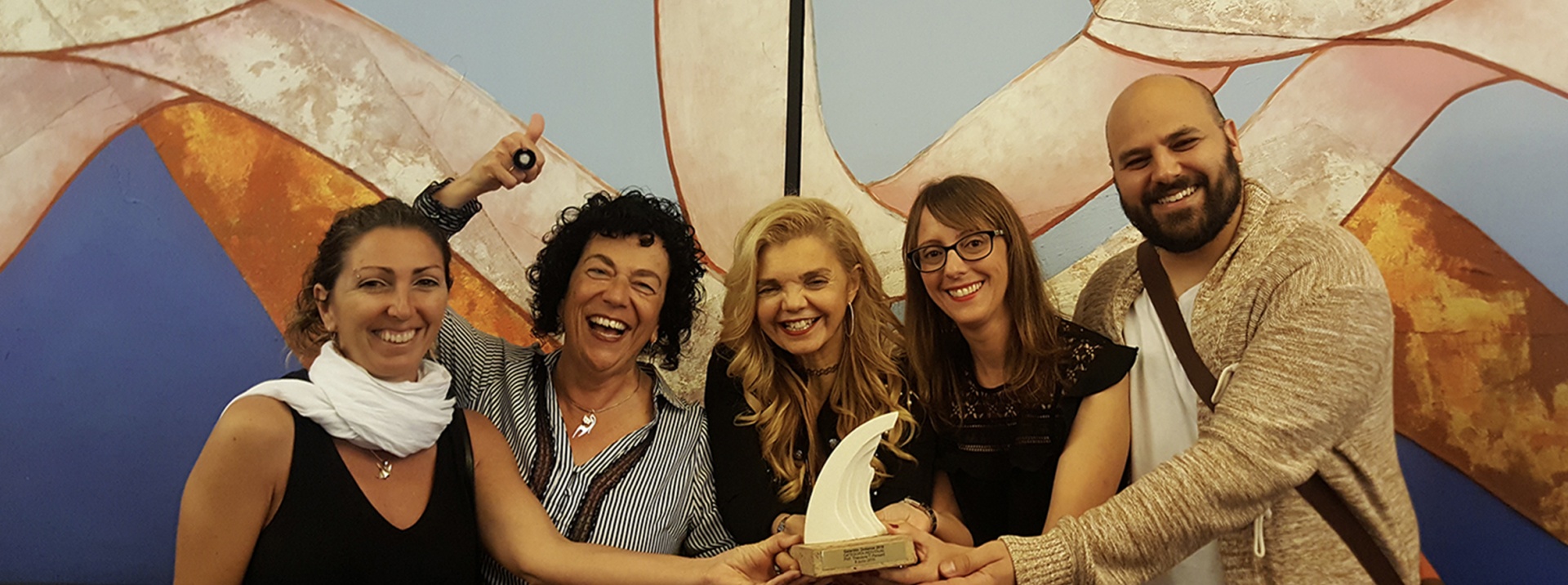The Atlantic Society of Oceanographers has awarded the Oceans 2019 Award to two researchers from the University Institute of Aquaculture and Sustainable Marine Ecosystems (ECOAQUA) of the University of Las Palmas de Gran Canaria (ULPGC), more specifically Theodore Train Packard, of the Marine Organism Ecophysiology Group, in the individual category, and Lucía Molina Domínguez, of the Aquaculture Research Group, in the education category, for her contribution to the promotion of marine science and the protection of seas and oceans.
The other two winners of this edition have been the TVE program 'El escarabajo verde', in the collective category, and the Department of Primary Sector, Sustainability, Waste and Water of the Municipality of Santa Lucía de Tirajana, corporation of the island of Gran Canaria, in the institutional modality.
These honourable mentions demonstrate once again the high level of the ECOAQUA research centre, which has 4 main divisions that follow different lines of research: the Aquaculture Research Group (GIA), directly related to fish nutrition and aquaculture; the Biodiversity and Conservation Group (BIOCON), dedicated to research with direct involvement in fisheries and the conservation of endangered species; the Marine Organisms Ecophysiology Group (EOMAR), focusing on physiological studies of marine ecosystems and the effect of microplastic pollution and the Tourism, Spatial Planning and Environment Group (TOTMA), related to the study of legal aspects relating to the maritime environment and coasts.
As highlighted in the awards ceremony, the American scientist Theodore Train Packard, specialized in Biochemistry, has been the creator of pioneering enzymatic techniques widely used from the 1960s to the present day in different fields (oceanography, ecology, ecotoxicology, etc...). These techniques have made it possible to better understand both the behaviour of oxygen in the oceans and the metabolism of marine organisms. Packard is the author of more than 130 scientific publications, is responsible for a large number of research projects carried out in different parts of the world and more than 200 scientific contributions to congresses. He has been a member of the oceanographic commissions of the Naval School of Monterey, the University of Washington, the University of Rhode Island, the University of South Carolina, or the Technical University of Denmark, among others.
Lucía Molina Domínguez from Melilla has combined teaching with aquaculture research for 20 years. She has a degree in Biology and a PhD in Marine Sciences. Her educational vocation also led her to study Teaching and Translation and Interpreting, and she is currently a teacher of Secondary Education in the upper and middle cycle of Aquaculture at the Antonio Cabrera Pérez Secondary School in the municipality of Telde in Gran Canaria, an activity that is compatible with teaching in the University Master's Degree in Marine Crops at the ULPGC.
Molina Domínguez has participated in more than 40 regional, national and international projects, both pure research and development cooperation in African countries, always in the field of aquaculture, and has written more than 90 scientific articles, 2 books and made more than 70 presentations at conferences. He already obtained the National Jacumar Aquaculture Research Award in 2003 and the Distinction to Social Merit for his contribution to the development of science granted by the Autonomous City of Melilla in 2007 and the recognition of the city of Telde in 2010.
The Atlantic Oceanographic Society (SAO), created in 2012, is a platform for action and support for strategies aimed at the recovery of life in the oceans. Its objective is to support the study of the oceans, and to highlight the role of professionals in Marine Sciences both in the creation of new science and knowledge, as well as in the coordination of teams of specialists in the exploitation of the oceans, in economic sectors such as fishing and the oil industry, the planning and management of marine areas for tourism, always taking into account the protection of sensitive ecosystems.
The SAO also touches on aspects such as dissemination, through the edition and publication of the magazine Oceans, and also develops its work in other areas related to education and awareness of the population through the organization of different events, with the aim of promoting citizen participation in the protection of marine waters. Specifically, in its seven editions, the Oceans Award has recognised the individual or collective work of more than twenty people or entities whose work has stood out in the promotion and protection of the oceans.


